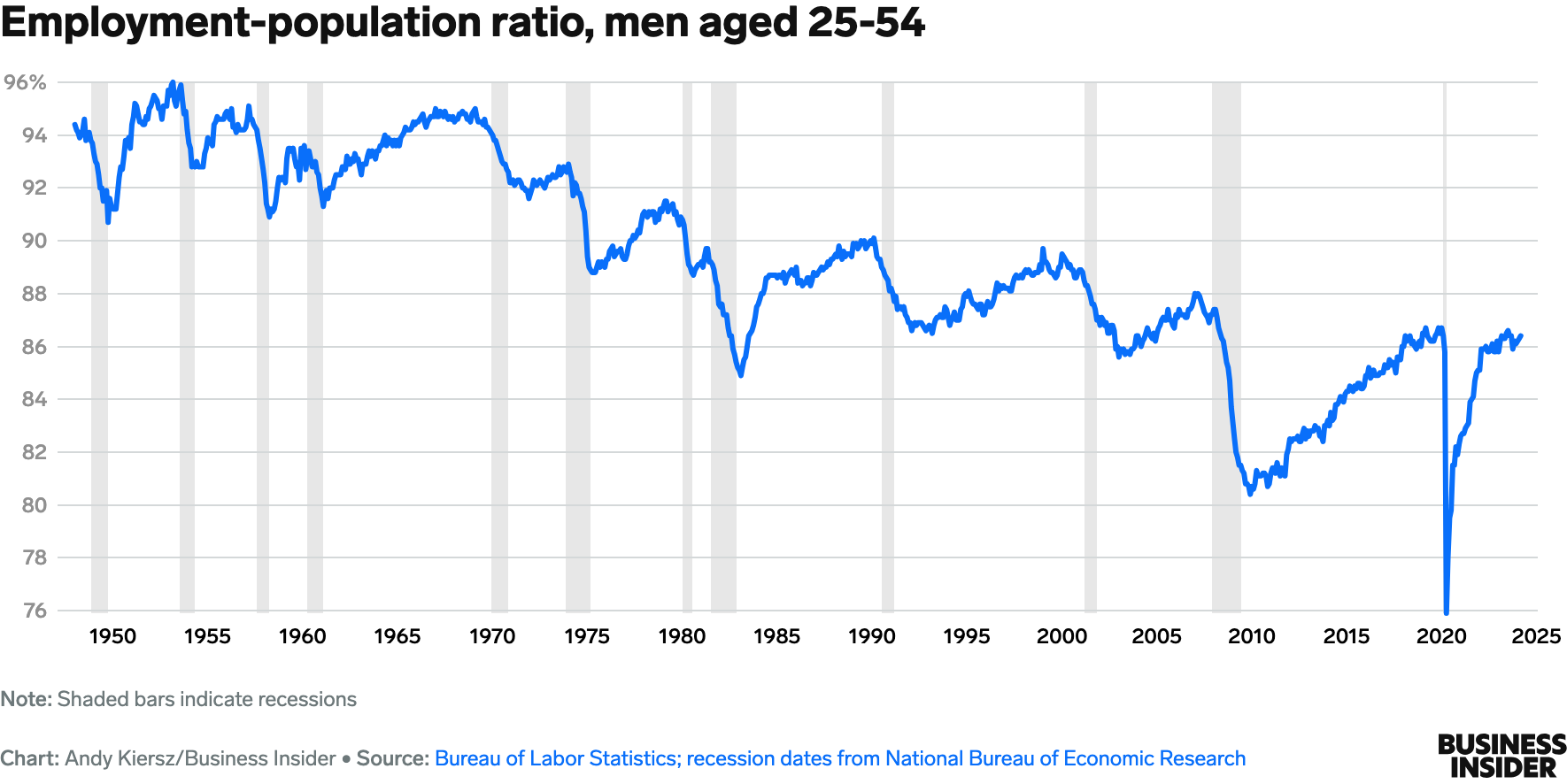The lost opportunity of part-time jobs for American men
In the 1950s, nearly 86% of American men had jobs. Today it's 67%. Full-time employment hasn't changed much. What vanished are the decent-paying part-time and seasonal jobs that once helped people rebuild their lives.

In the 1950s, nearly 86% of American men had a job. Today, that number has dropped dramatically, down to about 67%. The surprising part is that full-time employment hasn’t really changed much, staying at roughly 54% both then and now. Instead, what's vanished are decent-paying part-time and seasonal jobs.
Think about America in the 1950s. Part-time farmers in the fields. Factory floors crowded with men working shifts. About 30% of men worked these roles back then, earning decent money, respect, and making real contributions to their families and neighborhoods. But automation, outsourcing, and shifts in the economy have wiped out most of these opportunities. Today, only about 13% of men hold part-time jobs.
Data from the Bureau of Labor Statistics helps show the story clearly. In the 1950s, employment among prime-age men (ages 25-54) was near universal—96%. Today it's closer to 89%. The big difference? The loss of stable part-time and seasonal jobs. Industries that once provided these opportunities, like manufacturing, agriculture, and construction, have largely been automated or sent overseas.

The modern gig economy promised flexibility, but rarely delivers economic stability. Gig jobs often lack consistent wages, benefits, and opportunities for advancement. For men dealing with disabilities, recovery from addiction, or transitioning from incarceration, these jobs aren't realistic stepping stones to stable lives.
Consider this: according to the National Institute of Justice, former inmates employed shortly after release are far less likely to return to prison. Similarly, data from the Substance Abuse and Mental Health Services Administration show that employment significantly improves outcomes for people in recovery. Historically, part-time roles provided manageable steps toward independence—allowing people to rebuild their lives gradually, balancing employment with treatment or reintegration efforts.
So, could we intentionally rebuild those steps? Encouraging the creation of decent-paying, part-time jobs could help reconnect millions of sidelined men to meaningful work. Policies supporting flexible employment with stable wages, benefits, and clear training opportunities might create real economic shifts.
Germany’s “Mini-job” system offers a practical example. Workers in these roles receive good pay, flexibility, and important social benefits. Implementing similar policies here could open doors for disadvantaged groups, providing realistic pathways back into the workforce.
Of course, there’s good reason to be skeptical. Some argue that traditional, decent-paying part-time roles simply won't return. Automation, technology, and global competition have permanently reshaped our economy. They suggest that subsidizing part-time work could inadvertently distort labor markets, discouraging workers from pursuing full-time employment, and potentially creating dependency.
Another challenge is keeping pay fair and benefits meaningful in today's hyper-competitive global market. Achieving this balance without negatively impacting small businesses or industries sensitive to global pressures is complicated and would require careful policy design.
Yet, despite these challenges, the potential payoff is significant. Economists at Brookings suggest that increasing employment among marginalized groups reduces the burden on social services, stimulates local economies, and strengthens communities. But beyond economics, the most important benefit might be something simpler: restoring dignity and independence to millions of American men.
Bringing back robust part-time employment might not solve every problem, but it could provide a critical step toward rebuilding lives—one manageable job, one paycheck at a time.

